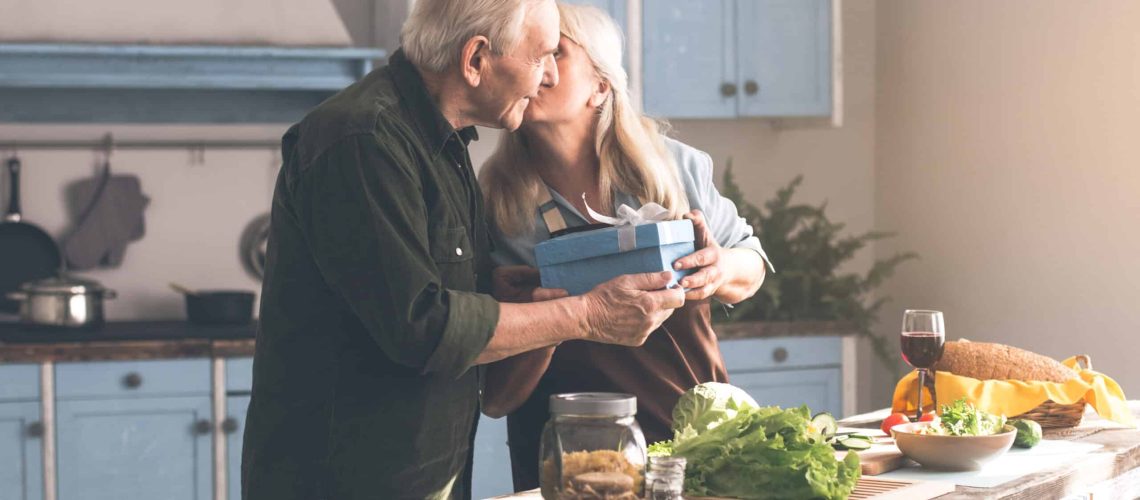Appreciation is a simple but powerful act that can have a profound impact on the well-being and happiness of individuals. Appreciation is a powerful tool in any relationship, and it’s especially vital in intimate relationships. When partners appreciate each other, they not only make each other feel good, but they also build a strong foundation for their relationship. In this blog, we will explore the power of appreciation in intimate relationships, why it is essential that partners appreciate each other, and the impact it can have on the relationship.
Appreciation involves recognizing and valuing someone’s efforts, qualities, or achievements. When we appreciate someone, we communicate that we see and value them, which can have a profound impact on their well-being and happiness. Studies have shown that feeling appreciated is a fundamental human need, and when this need is met, people are more likely to experience positive emotions, have better self-esteem, and feel more connected to others.
The Importance of Appreciation in Intimate Relationships
In intimate relationships, appreciation is even more important. Relationships thrive on positive interactions, and appreciation is one of the most positive interactions there is. When partners appreciate each other, they not only feel good about themselves, but they also feel more connected to each other. Appreciation can help partners build trust, deepen intimacy, reduce stress and create a positive cycle of mutual support.
The Pitfalls of Not Expressing Appreciation in Intimate Relationships
Failing to express appreciation in intimate relationships can lead to feelings of neglect, resentment, anxiety and disconnection. When partners don’t feel appreciated, they may feel undervalued, leading to a decrease in their overall happiness and well-being. Neglecting to express appreciation can also cause partners to feel unsupported and uncared for, leading to a breakdown in trust and intimacy.
Furthermore, taking each other for granted can lead to depression and a decrease in effort and motivation in the relationship. If one partner feels like their efforts and contributions are not acknowledged, they may feel less motivated to put effort into the relationship. Over time, this can lead to a downward spiral in the relationship, as both partners may feel neglected and unappreciated.
Not expressing appreciation in intimate relationships can have significant negative consequences. By making appreciation a priority in their relationship, partners can deepen their connection, build trust, and create a positive cycle of mutual support.
The Practical Benefits of Appreciation
In addition to its emotional benefits, appreciation also has practical benefits in relationships. When partners feel appreciated, they are more likely to put effort into the relationship, whether that means doing small acts of kindness or working through their relationship issues and challenges together. They are also more likely to forgive each other and be more patient with each other’s flaws and mistakes.
Unfortunately, many couples fall into the trap of taking each other for granted. When we get comfortable with someone, we may assume that they know how much we appreciate them, or we may forget to express our gratitude altogether. This can be especially true in long-term relationships, where the day-to-day stresses of life can make it challenging to focus on the positives. To cultivate appreciation in intimate relationships, couples can practice gratitude daily, be specific when expressing appreciation, make it a habit, and look for the positives.
Cultivating Appreciation in Intimate Relationships
So how can couples cultivate communication skills and appreciation in their relationships? Here are a few tips:
Practice gratitude daily: Take a few moments each day to reflect on what you appreciate about your partner. You can do this silently, in your head, but make sure you share your thoughts with your partner freqently.
Be specific: When you express appreciation, be specific about what you are grateful for. Instead of saying, “I appreciate you,” say something like, “I appreciate how patient you were with me today when I was feeling stressed.”
Make it a habit: Just like any other habit, practicing appreciation takes time and consistency. Set a goal to express gratitude to your partner every day, and make it a priority in your relationship.
Look for the positives: No matter how challenging your relationship issues may be at times, there are always positive aspects to focus on. When we focus on the positive aspects of our partner and our relationship, we increase our likelihood of feeling appreciation and gratitude towards them. Our attention and perception can shape our experience and feelings, and when we actively seek out the good, we are more likely to find it. By adopting a mindset of positivity and actively seeking out the strengths and joys of our relationship, we can cultivate a deeper sense of appreciation and connection with our partner. So instead of focusing on the negatives, take a moment to intentionally look for the positives and watch how it transforms your relationship.
The Role of Communication in Expressing Appreciation
Communication plays a critical role in expressing appreciation in intimate relationships. In order for appreciation to be effective in satisfying relationship, it needs to be communicated clearly and consistently. This means taking the time to express your gratitude in a way that your partner can understand and appreciate.
Effective communication of appreciation involves being specific about what you appreciate, why it matters to you, and how it has impacted your life. For example, instead of simply saying “Thank you for doing the dishes,” you could say “Thank you for doing the dishes. It means a lot to me because it shows that you understand how busy my day was and you’re willing to help out. It’s one less thing for me to worry about, and it makes me feel cared for.”
Effective communication of appreciation also involves being mindful of your partner’s communication style and preferences. Some people prefer to receive appreciation in private, while others may prefer public acknowledgement. It’s important to understand your partner’s communication style and adjust your approach accordingly.
Finally, effective communication of appreciation involves being consistent in your efforts to express gratitude. This means making appreciation a regular part of your communication with your partner, rather than an occasional afterthought.
In conclusion, appreciation is a powerful tool in intimate relationships. When partners effectively communicate their appreciation of each other, by being specific, mindful and consistent, they build a strong foundation for their relationship, deepen intimacy, and create a positive cycle of mutual support. By making appreciation a habit in your relationship, you can cultivate a deeper sense of gratitude and connection, leading to a happier and more fulfilling relationship. So take a moment today to express your appreciation and watch your relationship be transformed.
Maha Elias is a Registered Clinical Counsellor (RCC), Canadian Certified Counsellor (CCC), Comprehensive Family Mediator (FMC), and sexual health and trauma-informed marriage counselling and couples therapist with a counselling and couples therapy private practice inVictoria, British Columbia.

